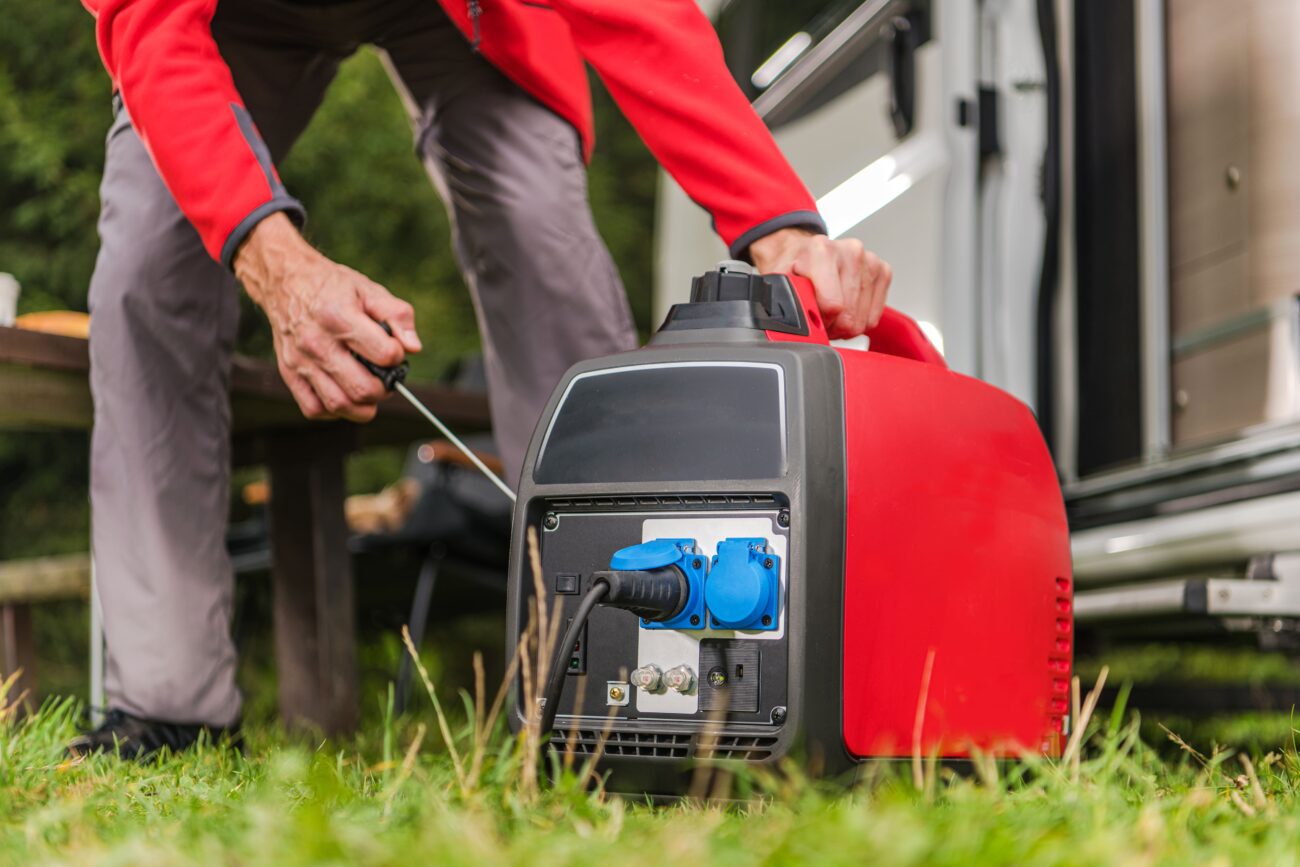Benefits of Cummins Portable Generators for Outdoor Activities
We rely more on electronic devices and tools that need power. Having a reliable source of electricity is important for outdoor activities like camping, barbecues, or events. A portable generator can make a big difference in these situations.
Among the many options available, Cummins portable generators stand out for their exceptional performance, durability, and versatility. This article will discuss the benefits of using Cummins portable generators for outdoor activities. They are a great choice for outdoor enthusiasts.
Why Choose Cummins Portable Generators?
First, let’s understand why the industry highly regards Cummins generators before discussing their specific benefits. Cummins is a globally recognized brand with over a century of experience in power generation solutions. Their commitment to innovation, quality, and reliability has made them a trusted name in both industrial and consumer markets.
A Legacy of Excellence
Cummins has been at the forefront of engine and power generation technology since 1919. This long-standing expertise translates into products that are not only efficient and powerful but also built to last. Choosing a Cummins portable generator is a wise investment in a dependable piece of equipment with extensive engineering expertise.
Designed for the Outdoors
Cummins understands the unique challenges posed by outdoor environments. They design their portable generators specifically to withstand the elements and perform reliably in various outdoor settings. These generators are tough and weather-resistant, making them reliable power sources for outdoor adventures.
Now that we’ve established the pedigree of Cummins generators, let’s explore the specific benefits they offer for outdoor activities.
Powering Your Outdoor Adventures
1. Reliable Performance in Any Environment
One of the primary advantages of Cummins portable generators is their ability to deliver consistent power output regardless of environmental conditions. Engineers designed these generators to perform optimally in scorching heat, freezing temperatures, or high humidity.
Temperature Tolerance
Cummins generators are equipped with advanced cooling systems that prevent overheating in hot climates. They are designed to start easily and work well in cold weather, so you have power when you need it.
Altitude Adaptability
For those who enjoy high-altitude camping or mountain retreats, Cummins generators are a reliable choice. Many models automatically adjust their performance based on altitude, maintaining consistent power output even in thin air.
2. Fuel Efficiency for Extended Use
When you’re out in the wilderness or far from fuel sources, efficiency becomes crucial. Cummins portable generators are fuel efficient, allowing you to use them for longer periods without having to refuel frequently.
Advanced Engine Technology
Cummins employs state-of-the-art engine designs that optimize fuel consumption without compromising on power output. This lets you use your appliances and devices for longer outside. It makes your time outdoors more comfortable and convenient.
Eco-Throttle Systems
Many Cummins models feature eco-throttle systems that automatically adjust engine speed based on the electrical load. This not only conserves fuel but also reduces noise and wear on the engine, extending the generator’s lifespan.
3. Quiet Operation for Peaceful Outdoor Experiences
One common concern with generators is noise pollution, which can detract from the serenity of outdoor settings. Cummins has addressed this issue with their innovative noise-reduction technologies.
Sound-Dampening Enclosures
Cummins portable generators often come with specially designed enclosures that significantly reduce operational noise. You can use electricity quietly at your campsite or outdoor event, making it easier for you.
Low-Tone Mufflers
Advanced muffler designs help to further minimize noise output, making Cummins generators some of the quietest in their class. This is particularly beneficial for nighttime use or in areas where noise regulations are strict.
4. Versatility for Various Outdoor Activities
The beauty of Cummins portable generators lies in their versatility. They are designed to cater to a wide range of outdoor activities and power needs.
Camping and RV Use
For campers and RV enthusiasts, Cummins generators provide the perfect balance of power and portability. They can run air conditioners, refrigerators, and other appliances, making your outdoor living experience more comfortable.
Outdoor Events and Parties
Planning a backyard wedding or a beach party? Cummins generators provide power for sound systems, lighting, and catering equipment, ensuring your event runs smoothly.
Construction and DIY Projects
Cummins generators offer dependable power for outdoor projects, even in remote areas without electricity. Perfect for construction or DIY tasks.
5. Easy Portability and Setup
Despite their robust performance, Cummins portable generators are designed with mobility in mind.
Compact Designs
Many models feature compact, space-saving designs that make them easy to transport and store. This is particularly beneficial for those with limited storage space or who frequently move their equipment.
Wheel Kits and Handles
To enhance portability, Cummins often includes sturdy wheel kits and ergonomic handles in their generator designs. This allows for easy maneuvering, even on rough terrain.
Safety Features for Peace of Mind
When using any electrical equipment outdoors, safety is paramount. Cummins portable generators come equipped with a range of safety features to protect both users and equipment.
1. Automatic Shutdown Systems
To prevent damage from low oil levels or overheating, Cummins generators are equipped with automatic shutdown systems. These safeguards help extend the life of your generator and prevent potentially dangerous situations.
2. GFCI Protection
Many Cummins models have GFCI outlets. They provide extra protection against electrical shocks. This is crucial in outdoor areas with moisture.
3. Spark Arrestors
For use in fire-prone areas or during dry seasons, Cummins generators often include spark arrestors. These devices prevent the emission of flammable debris from the exhaust, reducing the risk of accidental fires.
Environmental Considerations
In today’s eco-conscious world, the environmental impact of our equipment choices matters. Cummins is committed to producing generators that minimize their ecological footprint.
1. Low Emissions
Many Cummins portable generators are designed to meet or exceed EPA and CARB emissions standards. This means you can enjoy the benefits of portable power with less impact on the environment.
2. Biodiesel Compatibility
Some Cummins models are compatible with biodiesel blends, offering a more sustainable fuel option for environmentally conscious users.
3. Recyclable Components
Cummins produces generators that are designed for easy recycling. They use recyclable materials and components once the product reaches the end of its life.
Maintenance and Longevity
Investing in a Cummins portable generator means investing in a product built to last. However, like any mechanical equipment, proper maintenance is key to ensuring long-term reliability and performance.
1. User-Friendly Maintenance
Cummins designs their generators with user-friendly maintenance in mind. Many models feature easy-access panels for routine checks and simple component replacement.
2. Extended Service Intervals
Thanks to their robust construction and high-quality components, Cummins generators often boast extended service intervals. This means less frequent maintenance and more time enjoying your outdoor activities.
3. Comprehensive Warranty Coverage
Cummins stands behind their products with comprehensive warranty coverage. This gives users peace of mind and protection for their investment, especially for equipment used outdoors in tough conditions.
Choosing the Right Cummins Generator for Your Needs
With a range of models available, selecting the right Cummins portable generator for your outdoor activities requires some consideration.
1. Assess Your Power Requirements
Start by listing the devices and appliances you plan to power. Calculate their combined wattage to determine the minimum power output you’ll need from your generator.
2. Consider Portability Needs
Think about how often you’ll need to move the generator and over what kind of terrain. This will help you decide on the size and portability features that best suit your needs.
3. Evaluate Noise Restrictions
If you’ll be using the generator in noise-sensitive areas, prioritize models with advanced sound-dampening features.
4. Factor in Fuel Availability
Consider the type of fuel that will be most readily available during your outdoor activities. Cummins offers generators that run on various fuel types, including gasoline, propane, and diesel.
Real-World Applications
To understand how Cummins portable generators are useful for outdoor activities, let’s see examples of when they work well.
1. Remote Camping Trips
Imagine setting up camp in a secluded forest clearing, miles from the nearest power outlet. A Cummins portable generator lets you have lighting, charge devices, and use small appliances. It keeps noise and environmental impact low.
2. Outdoor Weddings and Events
Planning a rustic outdoor wedding? A Cummins generator can provide power for your wedding, including lights, music, and catering equipment. This ensures that your day goes smoothly, regardless of the venue’s power supply.
3. Emergency Preparedness
While primarily discussed for recreational use, Cummins portable generators also serve as excellent backup power sources during emergencies. Having a reliable generator can make a big difference in comfort and safety during natural disasters or power outages.
4. Mobile Business Operations
Cummins generators provide reliable power for businesses on the go, like food trucks and mobile pet groomers. They ensure operations run smoothly, even in remote locations.
The Future of Portable Power
As technology advances, so too does the field of portable power generation. Cummins is leading the way in creating new products to meet the changing needs of outdoor enthusiasts and professionals.
1. Smart Technology Integration
Future Cummins generators may incorporate smart technology, allowing users to monitor and control their generators remotely via smartphone apps. This could include features like fuel level monitoring, maintenance alerts, and power output adjustments.
2. Increased Fuel Flexibility
Cummins is developing generators that can use different fuels, including renewable sources, as alternative fuels become more popular. These generators are being designed to be versatile and adaptable to various fuel options. Cummins is focusing on creating sustainable energy solutions for their generators.
3. Enhanced Power Density
Further research and development may result in generators that are more powerful yet smaller and lighter. This will make them easier to carry and more convenient for outdoor activities.
Conclusion: Powering Your Outdoor Lifestyle with Confidence
In conclusion, Cummins portable generators offer a compelling array of benefits for outdoor enthusiasts and professionals alike. Designers created these generators to enhance your outdoor experiences. They offer reliable performance, fuel efficiency, quiet operation, and safety features. They provide power and convenience without compromising any of these features.
A Cummins portable generator can come in handy for camping, outdoor events, or power outages. The generator is a portable power source. It is easy to transport and can be used outdoors. It provides electricity when necessary. It is a reliable option for various situations.
They can be used in many ways, last a long time, and are environmentally friendly. This makes them a great choice for anyone looking for high-quality outdoor gear.
For those in the Houston area looking to experience the benefits of Cummins generators firsthand, look no further than A&A Genpro, Inc. As a premier Cummins Generator Dealer, they offer a wide range of industrial and commercial generators to suit various needs. Our expertise and commitment to customer satisfaction make us an ideal partner in finding the perfect power solution for your outdoor activities.
Don’t let power limitations hold you back from fully enjoying your outdoor adventures. Explore the world of Cummins portable generators and take your outdoor experiences to the next level. Visit A&A Genpro, Inc. today to find the perfect Cummins generator for your needs and power your outdoor lifestyle with confidence.
Frequently Asked Questions (FAQs)
-
How long can a Cummins portable generator run continuously?
The runtime of a Cummins portable generator depends on the model, fuel tank capacity, and load. Many models can run for 10-20 hours on a single tank at 50% load, but always consult the specific model’s specifications for accurate information.
2. Are Cummins generators safe to use in rainy conditions?
While Cummins generators are designed for outdoor use, they should be protected from direct exposure to rain. Use them under a canopy or generator tent for added protection in wet conditions.
3. Can I power my RV air conditioner with a Cummins portable generator?
Yes, many Cummins portable generators are capable of powering RV air conditioners. However, it’s important to choose a model with sufficient wattage to handle the high starting power required by air conditioning units.
4. How often should I service my Cummins portable generator?
Regular maintenance is key to longevity. Generally, it’s recommended to perform basic checks before each use and conduct more thorough servicing every 100 hours of operation or annually, whichever comes first. Always refer to your model’s user manual for specific maintenance schedules.
5. Are Cummins generators compatible with sensitive electronics like laptops and smartphones?
Many Cummins portable generators feature inverter technology, which produces clean, stable power suitable for sensitive electronics. Always check the specific model’s features to ensure it’s appropriate for your devices.




